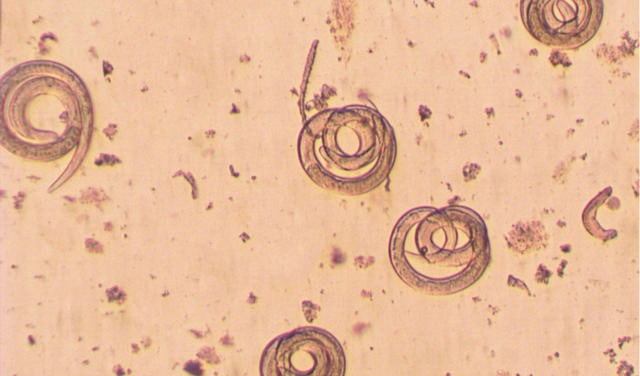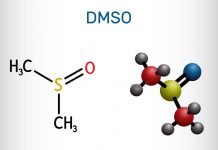About Trichinella spiralis
Trichinella spp. are tiny parasitic nematodes that infect animals. Pigs, bears, and walrus are particularly notorious for passing the parasites on to humans when their meat is eaten without thorough cooking. When the source animal is a pig, the parasite is almost always Trichinella spiralis. When different animals are involved, other trichinella species are more likely.
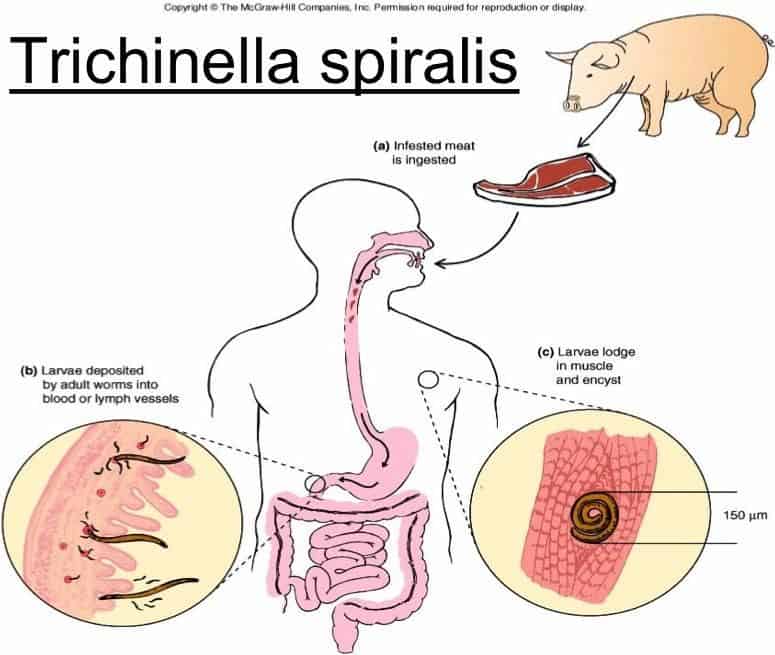
Adult trichinella worms live in the intestinal lining, but it is their larvae that cause most of the symptoms and damage typical of trichinosis (also called trichinellosis).
Trichinella Life Cycle
When the larvae of Trichinella spiralis are consumed in undercooked pork, digestive processes liberate them in the intestine and they invade the intestinal lining. Their life cycle is as follows:
- Larvae grow quickly to male and female adults in the intestinal lining and mate.
- Females produce eggs which hatch before they are released from the mother’s body.
- Larvae leave the female and migrate through the tissue into the bloodstream, travelling throughout the body.

- Larvae move through blood vessel walls into tissues and organs.
- Each larva invades a muscle cell and takes over its function, turning it into a “nurse cell’ that exists only to support and protect the larva.
- Larvae become dormant and reactivate again only if they are eaten by a new host.
Symptoms of Trichinosis
In light cases of trichinosis there may be no symptoms and the infection will go unnoticed. When symptoms do occur they are associated largely with the tissue damage caused by migrating worm larvae in the intestine, organs, and muscles. Typical symptoms of trichinosis include:
- Abdominal pain
- Nausea, vomiting, and diarrhea
- Fever
- Swelling of the face and extremities
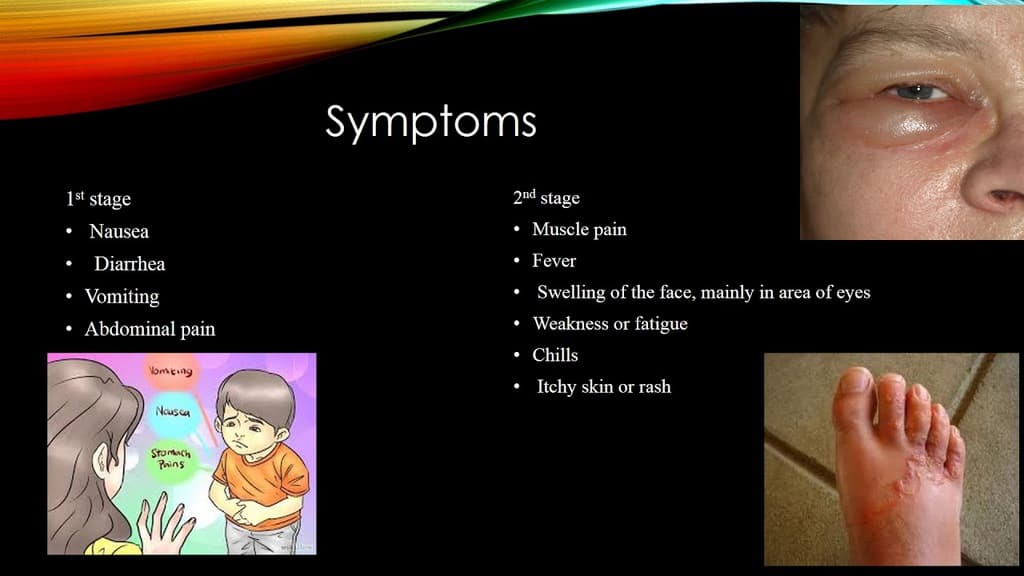
- Headache
- Muscle aches
- Rash
- Conjunctivitis
- Signs of specific organ damage
Death can occur in particularly heavy infections.
xyz-ihs snippet=”random”]
Geographic Distribution of Trichinosis
Trichinella spp. as a group are global parasites. Wherever pork is eaten Trichinella spiralis will pass from pigs to humans. Other species, however, are not so widespread. Trichinella nativa, for example is found in arctic regions, while T. nelsoni is a tropical species.
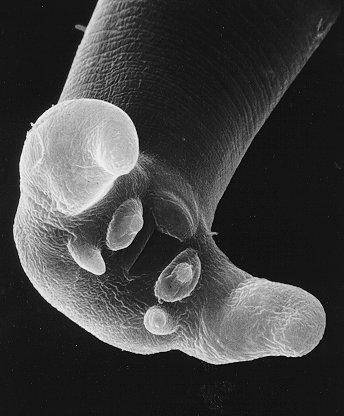
Trichinosis used to be very common in North America. Historically, most cases were acquired from undercooked pork: the pigs themselves became infected when they were fed raw garbage containing meat scraps.
When feeding raw garbage to pigs was banned, trichinosis became a rare infection in humans and most cases in developed countries today result from eating undercooked wild game such as bear, wild boar, cougar, walrus, and other animals. Safety measures such as freezing pork and testing commercial swine for the parasite have made North American pork very safe.


